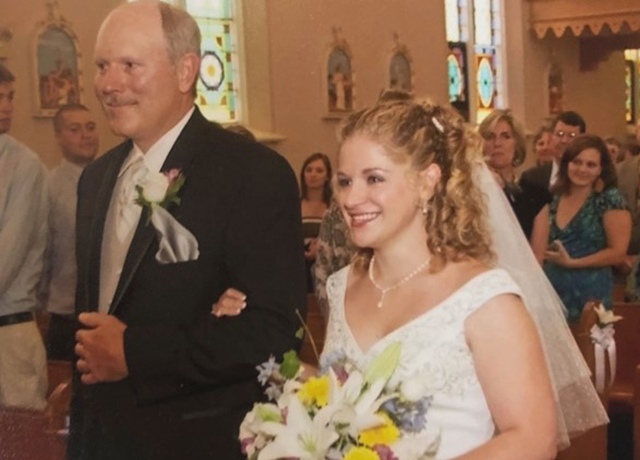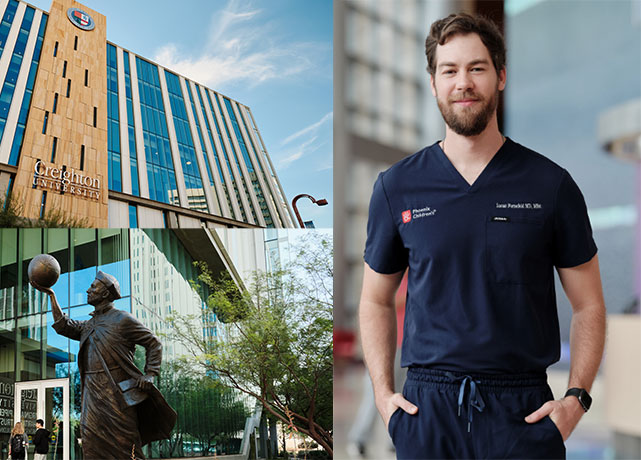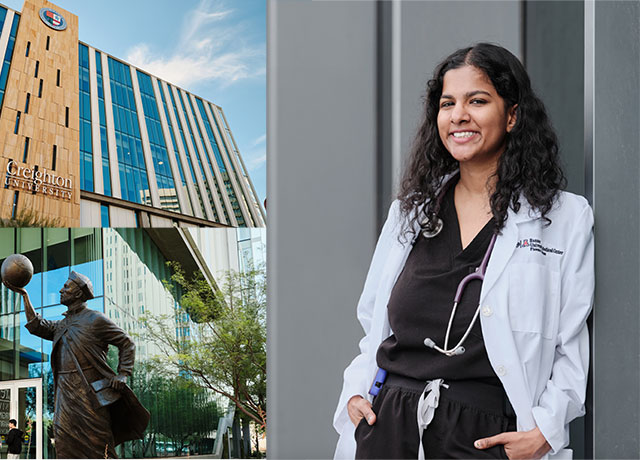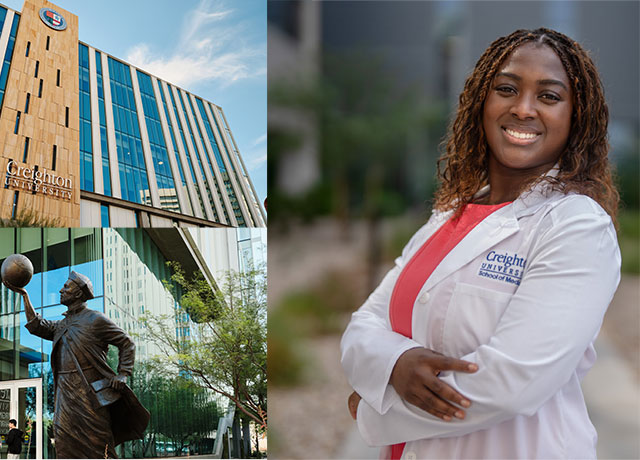Featured Testimonial About Creighton University
The values of cura personalis. Not just taking care of the whole person but the person’s whole family. Things like this give us hope and keep us hanging on.


Des Moines nurse Erin Muth, BSN’08, has turned a recent harrowing experience into a good cause, in a story that highlights the potentially life-saving importance of the simple, everyday communication we take for granted.
Mid March. Erin learns that her father, 65-year-old Steve Blaha, is sick with what seems to be a sinus infection. He takes some Mucinex, calls his doctor, gets some rest. A few days later, he can’t get out of bed. Erin’s mother takes him to the emergency room, where he tests positive for the coronavirus.
Steve is one of the first coronavirus patients admitted to this St. Louis-area hospital. His family is asked to leave. They haven’t been able to see him in person since.
Things escalated fast. One morning, Erin’s mom called her: “Call Dad now! They’re going to put in a breathing tube, and he won’t be able to talk.”
Six days later, Steve Blaha’s heart stopped. He was resuscitated with CPR, but other organs were starting to fail. That night, a nurse held the phone up to his ear so his family could talk to him. The next day, he turned 65. His wife wished him a happy birthday through video chat.
After that, he started to improve. In the days since, he’s continued to improve. In fact, he just got his breathing tube taken out and is calling his family regularly.
“I have to think that the communication we had with him was what gave him the push to keep fighting,” Erin says. “I know some people would tell me it’s a coincidence, but I have to believe that him being able to hear our voices and see our faces gave him that extra something he needed.”
At some point throughout the ordeal, the nurse who has helped Steve stay in touch with his family noted that not all the COVID-19 patients had come into the hospital with their phones. “It would be great if we had iPads in every room,” the nurse said. “So all the patients (with coronavirus) could do video chats with their family.”
And Erin thought: I can do that.
“I can donate an iPad or two. I’m not rich, but I can do that.”
What started out as a few iPads soon turned to dozens. She texted friends and family. Then friends and family started texting her. They’d heard about her project. How could they help?
Erin took the cause to GoFundMe and met her initial goal of $8,000 within 48 hours. So, she set a new goal of $15,000. She met that one, too. Now she’s trying to raise $24,000, which will get iPad minis into the ICU and COVID-19 rooms not just at the hospital where her dad is being treated, but at multiple locations throughout the hospital’s system, SSM Health.
To have a loved one dying is a terrifying enough prospect. But to not be able to see them. Talk to them. Even know how they’re doing at the moment. To not be able to say goodbye.
“You’re helpless,” Erin says. “I feel like I’m a crazy person. All I do is watch my phone, and if I can’t find my phone, I have a panic attack. What if the doctor calls me or my dad calls me with an update? What if I miss the one chance I’ve got?”
It was out of these feelings of dread and helplessness that Erin launched her cause, in the days since adopting a single-minded determination to make a difference for families cut off from a loved one and trying to reconnect.
She hopes the availability of the iPads will help families like her own, when something as simple as a FaceTime call can be a matter of life and death.
Beyond her project, Erin says her father’s stay in the hospital has reinforced the importance of empathetic nursing, of what she learned at Creighton — caring for each patient as a whole person.
The nurse treating Erin’s father, the one who held the phone up to his ear the night after his heart stopped, has continually kept in touch with the family. She asks them how to better connect with her patient.
I keep talking to him about my cat. Does Steve like cats? Not especially, no.
What should I talk to him about? Hunting and fishing.
“That she’s taking that extra step to be more caring and empathetic, especially at a time when health care workers are so busy trying to save lives, it means so much,” Erin says. “It feels like it encompasses the values of cura personalis. Not just taking care of the whole person but the person’s whole family. Things like this give us hope and keep us hanging on.”


